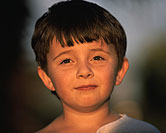
FRIDAY, Oct. 5 (HealthDay News) — Patients with lung disease who catch a cold are more likely to develop symptoms such as a sore throat, runny nose or cough if they have been around school-aged children, according to a new study.
The findings were a surprise, the researchers noted.
“Before we conducted this study, I would have expected other factors — perhaps the severity of underlying disease or the state of the patient’s general health — to indicate who would actually suffer symptoms from their colds,” study senior author Dr. Ann Falsey, professor of medicine at the University of Rochester and an infectious disease expert at Rochester General Hospital in Rochester, N.Y., said in a university news release.
“Instead, contact with school-aged children is the only risk factor we found, and it increases both the risk of infection and also the risk of suffering symptoms once you’ve caught a cold,” she said.
The study was based on a databank of 1,000 samples of sputum and nasal secretions from 127 people with chronic obstructive pulmonary disease. The samples were collected from the patients at six different times over one year.
Chronic obstructive pulmonary disease is a term used to describe certain lung conditions including emphysema and chronic bronchitis.
One-third of those who became infected with a rhinovirus — the bug that causes most colds — had no symptoms. Further investigation showed that people who were infected and developed typical cold symptoms were about twice as likely to have had contact with school-aged children than those who were infected but did not develop symptoms.
The study was published Sept. 21 in the Journal of Clinical Virology.
Colds tend to be worse in young children, who have not had as many years to build up immunity to the large number of rhinoviruses that people repeatedly encounter throughout their lives, the release noted. Because their colds are worse, children have more severe symptoms, such as higher amounts of nasal secretions. This may explain why they’re more likely to pass their colds on to other people.
“We know that kids shed more virus longer when they get a cold,” Falsey said. “It may be that your chance of developing cold symptoms is related to the amount of virus you’re exposed to, and if you’re around small children, you’re exposed to more virus. The idea makes sense, but it’s speculation at this point.”
“We all know that children are efficient germ-spreading vectors and we know that young children oftentimes don’t have ideal hygiene habits,” she said. “It’s not unusual for them to accidentally sneeze in your face, for instance. If you have a grandchild who is sick, it may simply be smart to plan a visit for another day.”
More information
The American Lung Association has more about the common cold.

